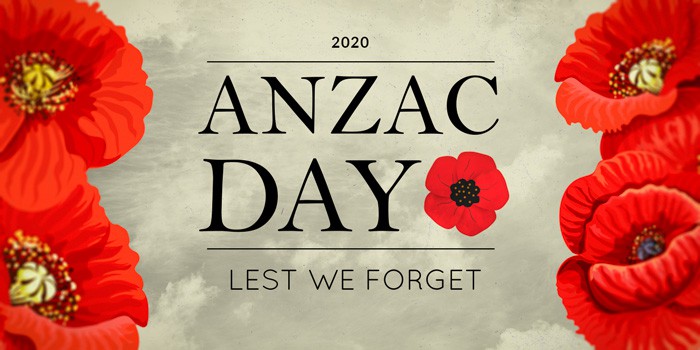Understanding ANZAC Day: A Parent’s Guide to Its Significance
Hello there, lovely parents and guardians! Are you looking to immerse your family in a meaningful history lesson that’s packed with bravery, respect, and remembrance? Well, you’ve come to the perfect place! Today, we’re going to explore the heart and soul of ANZAC Day, a day that has etched itself into the fabric of not just one but two great nations – Australia and New Zealand! Get ready to embark on a journey of understanding, commemoration, and education, all through the lens of love and respect for those who have given so much for us.
The Dawn of ANZAC Day: An Introduction
The 25th of April each year marks ANZAC Day, a solemn day of commemoration where Australians and New Zealanders honor the valiant efforts of the Australian and New Zealand Army Corps (ANZACs) who fought during World War I. But hey, it’s not just about flipping through dusty history books; it’s about bringing a story to life – a story of courage, endurance, and mateship that’s relevant even to our daily lives!
Why ANZAC Day Matters: More Than a History Lesson
Sometimes it’s easy to see a holiday as just another day off school or work, right? But ANZAC Day is so much more than that. It’s a chance to weave together the threads of the past with our present and future – it instills in us the importance of courage, sacrifice, and teamwork. And who knows, the stories of past heroes might just inspire a little one in your life to make a positive difference in their world!
Cherished Traditions of ANZAC Day
From the break of dawn to the setting sun, ANZAC Day is wrapped in tradition. It starts with the Dawn Service – perhaps the most hushed and stirring sounds as the day breaks. Communities all over gather to remember in silence the men and women who have served. This is often followed by parades, where veterans and service members march in honor of their fallen brothers and sisters. And let’s not forget the iconic ANZAC cookie! Baking these with your kids is not only a yummy treat but also a fantastic opportunity to chat about the symbolism of ANZAC Day – and who doesn’t like a good heart-to-heart over cookies?
Educating Young Minds About ANZAC Day
Let’s pivot to why you’re here really, shall we? It’s one thing to know the traditions; it’s another to help our kiddos truly understand why ANZAC Day is so significant. And guess what? You don’t have to be a history buff to do it! Simple activities like reading children’s books about ANZAC Day, talking to a local veteran, or visiting a war memorial can all be wonderful and age-appropriate ways to open a dialogue. Remember, it’s about planting seeds of curiosity, respect, and honor that will grow year on year.
We’ve really only just begun to scratch the surface of this meaningful day – there’s so much more to learn and so many activities you can engage in with your children. Stay tuned, because our next part of this guide will delve deeper into how to bring ANZAC Day to life in your family discussions, more interactive learning experiences, and touching ways to pay tribute to the ANZAC spirit. Together, let’s continue to remember and teach our children the true meaning behind these powerful traditions!

Five Things Every Parent Should Know When Preparing for ANZAC Day’s Significance
As ANZAC Day approaches, it’s important to prepare your family, especially the young ones, for understanding and respecting the significance of this day. Here are five things to keep in mind as you embark on this journey of remembrance and education:
- The Historical Context is Key: Before diving into the various activities and ceremonies, take some time to explain the historical importance of ANZAC Day. Share stories of the ANZAC soldiers’ experiences in World War I, particularly the Gallipoli campaign, to provide context for the commemorations.
- Respecting the Silence: The Dawn Service is a time of quiet reflection and respect. It’s an opportunity to teach children about the value of silence in honoring those who have served and sacrificed. Let them know that their quietude is a powerful form of remembrance.
- Embracing Traditions: Whether it’s attending a local march, watching a parade, or baking ANZAC cookies, traditions are a tangible way for children to connect with the day’s meaning. Participate in these traditions together and discuss how they keep the ANZAC spirit alive.
- Interactive Learning: Use interactive resources such as documentaries, museum visits, or online educational games about the ANZACs. These can help children visualize and understand the period, making the learning experience more engaging and memorable.
- Commemorative Crafts: Hands-on activities like making poppies, crafting wreaths, or drawing pictures of Gallipoli can be both informative and healing. It provides an outlet for children to express what they’ve learned and to engage with the day on a creative level.
With these aspects in mind, nurturing an appreciation for ANZAC Day can be a rewarding experience for the whole family. It’s about connecting the past with the present, weaving stories of bravery and mateship into our modern lives, and ensuring that the ANZAC legacy continues to be honored by future generations.
…Stay curious and engaged, dear families, as we walk you through more enriching ways to embrace ANZAC Day. Teaching our little ones about the bravery and sacrifices made by the ANZACs is a journey we’re on together, building a bridge of understanding and remembrance for them to cross year after year. So stay with us, as there’s much more to explore and learn together!
See more great Things to Do with Kids in New Zealand here. For more information see here
Disclaimer
The articles available via our website provide general information only and we strongly urge readers to exercise caution and conduct their own thorough research and fact-checking. The information presented should not be taken as absolute truth, and, to the maximum extent permitted by law, we will not be held liable for any inaccuracies or errors in the content. It is essential for individuals to independently verify and validate the information before making any decisions or taking any actions based on the articles.




